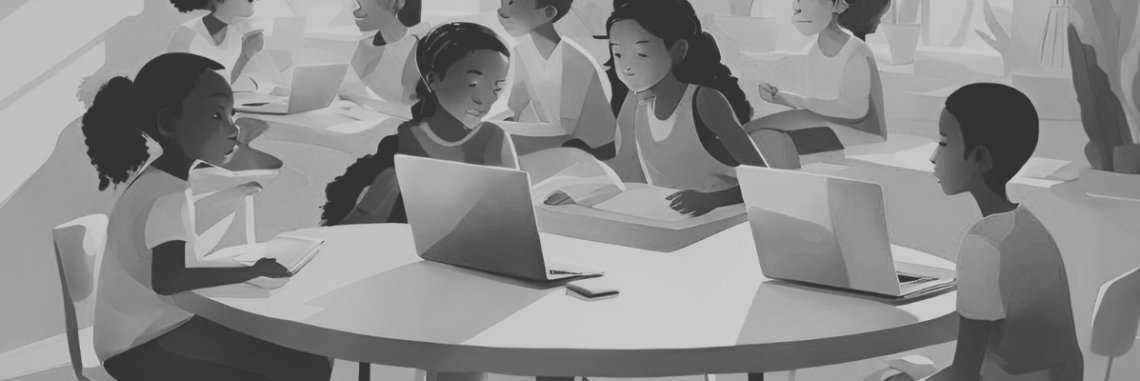I had the incredible opportunity to present my research on Safeguarding K-12 Students Against Online Predators at the 22nd Annual Hawaii International Conference on Education in Kailua-Kona, Hawaii in January 3-6, 2024. This was my first academic conference and poster presentation as a graduate student pursuing my Doctor of Education in organizational leadership at Pepperdine University. My colleague and fellow doctoral student, Maritza Sosa-Nieves, and I had initially conducted this research during the summer of 2023 as an assignment from one of our courses: Advocacy, Social Change, and Public Policy Development. A key objective of the course was to examine the role of technology in shaping current policy development and to present significant discussions on key issues in education and technology policy.
To accomplish our task, we spent two weeks in Washington D.C. to meet with think tanks and nonprofit leaders regarding our topic. One such meeting was with Dr. Eleanor Kennelly Gaetan, vice present of public policy, and Edward W. Reinhold, chief operating officer and FBI veteran, at the National Center on Sexual Exploitation (NCOSE). Since 1962, NCOSE has been advocating and engaging in litigation for those suffering from sexual abuse and exploitation. They have been at the forefront of combatting child sexual abuse material (CSAM) by pushing forward public policies such as the Earn IT Act, which helps to clarify the law concerning Big Tech’s blanket immunity as outlined in Section 230 of the Communications Decency Act (CDA).
Based on our experience at our nation’s capital, along with my background and expertise in the social media, digital marketing, and information communication technology (ICT) space, as well as Maritza’s background in public service, most recently serving as School Board Trustee at the Los Nietos School District in Los Angeles County, we decided to do a poster presentation at HICE. We were also driven to conduct and present our research because we are first of all concerned mothers who have witnessed the challenges that children, even as young as 4 or 5 years old, are facing by being exposed to predatorial behavior and online grooming in the form of pornography, child sexual abuse material (CSAM), and forming friendships with adult strangers posed as children in online video game communities such as Roblox.
The crux of our research and poster presentation was to educate and empower K-12 school board members, administrators, educators, and social/youth workers to: a) Be vocal about national, state, county, and local laws and initiatives that prevent CSAM and other online grooming and sexual abuse/exploitation; b) Be aware of existing online child safety laws such as the Protecting Children in the 21st Century Act, which requires schools and libraries to teach online safety to students and staff, monitor students’ Internet use, filter web-based content, and report online safety violations; c) Increase Digital Intelligence (DQ) and Internet Safety as part of the overall curriculum for students such as scenarios, quizzes, videos, games, digital footprints, etc.; d) Work with local legislators, tech companies, and law enforcement agencies to distribute materials and hold workshops/seminars annually regarding CSAM prevention; and e) Organize student assemblies to discuss web-based dangers. We also recommended that policymakers should: a) Devise incentives and/or fines to tech companies who continue to not utilize CSAM detection classifiers or are unwilling to be held accountable to CSAM occurring on their digital platforms, especially during livestreams; and b) Specify the limited liability protections of tech companies.
Overall, I didn’t know what to expect at HICE, but I was astounded by the support and feedback we received from fellow researchers from other universities and K-12 schools as well as our own Pepperdine community. A few recommended that we publish our research in several academic journals and provided us with contact information for the editors of these journals. We also received invites to speak at a few schools/school districts in Los Angeles County and Orange County. In addition to co-presenting the poster, I attended the conference so that I could experience how academic conferences are run. I participated in up to four to five sessions per day that covered various topics such as “Generative AI and Effective Teaching;” “Transforming Education with ChatGPT: Using the Power of AI for Engaging, Empowering, and Entertaining Learning;” and “The Relationship Between Teaching and Learning: Transforming Paradigms for the Future.” All in all, HICE was attended by 1,100 participants representing 47 countries and I found the conference to be a good experience for new academic presenters like myself.
I am ever grateful to Dr. Bonni Stachowiak, Dean of Division of Teaching and Learning, the Faculty Development Committee, and my chair, Naomi Kasa, for their unwavering support and professional development funding towards my pursuits in academic research and conference participation. My goal is to present at one to two academic conferences per year, beginning in 2025. I hope to do a plenary session and/or panel discussions on my current research involving my dissertation topic and eventually, once it’s completed, I hope to do keynote sessions. I’m reviewing a couple of upcoming business and management conferences as well as social media and ICT conferences for 2025 and beyond. I also hope to collaborate with some of my Vanguard University colleagues and fellow researchers at Pepperdine University in a cross-disciplinary topic and am open to suggestions.




